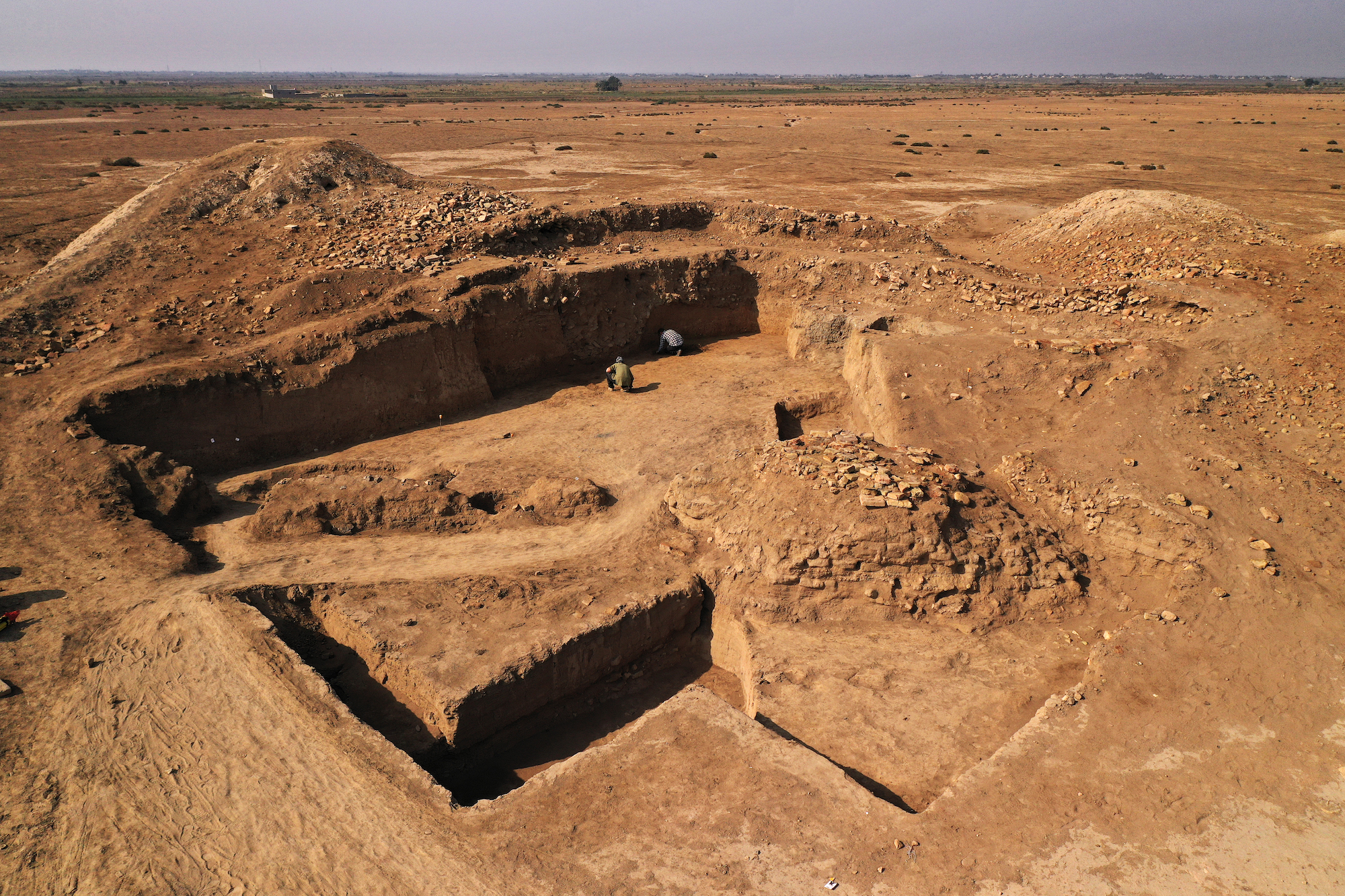Just picture it. It's a warm Nisannu night in Lagash and you've just gotten off work at the ziggurat. King En-hegal can be a real bear to work for, but at least he pays on time. It's been a long week, and you could really use a drink. So you and your buddy Lunanna head to the bar. The barman brings a bowl of beer to your table and as you drink it through a straw, Lunanna tells a joke...
— depths of wikipedia (@depthsofwiki) March 10, 2022
...and because you're Sumerian and it's 2700 BCE, you actually get it. The place is hopping tonight. There's a breeze coming off the Euphrates, so you finish your carp and head out to the bar's courtyard area for some fresh air. The poet-bard in the corner is warming up; you figured he'll probably tell of Gilgamesh and Enkidu again, but that's OK, you like that one. You're feeling good tonight. The beer is cold. The air is clear. You finally worked up the courage to tell off that asshole Ea-nasir. Your pal Gu-be is coming by later and he's bringing some priestesses from the temple of Nanshe, and you know what they say about Nanshe's priestesses. Life here in Mesopotamia in the third millennium BCE may still be mostly nasty, brutish, and short, but right now it's pretty good.
My history, in the imaginings above, is disastrous—do not cite any of this in a paper or on a test—but the bar itself was very real. In the fall of 2022, archaeologists from the the University of Pennsylvania and the University of Pisa unearthed a tavern in the ruins of Lagash, a Sumerian city-state in what is now southern Iraq. And not just any tavern, but one which had at least two elements of what frankly still makes a good bar today: a kitchen and outdoor space. “It’s a public eating space dating to somewhere around 2700 BCE,” said Holly Pittman, a Penn professor and the Lagash project director. “It’s partially open air, partially kitchen area.”
The bar, found just 20 inches beneath the surface, is in a remarkable state of preservation. There's a brick oven. There are benches for patrons to sit. There are dozens of bowls still containing the remains of fish which was served at the tavern. There's even a zeer, an ancient and ingenious sort of clay refrigerator which used evaporation to keep food and drink cool, and which is still used today.
The excavations help paint a picture of history that doesn't usually get preserved otherwise—epic poems and king lists immortalize rulers and battles, but normal people usually get short shrift. The Penn/Pisa project is in its fourth season in Lagash, which was occupied for about 3,000 years until the second millennium BCE, and has been fleshing out a portrait of an unglamorous part of town in one of the world's oldest cities. "A capital city but also an important industrial one," is how Pittman describes it, comparing it to Trenton, N.J.
The bar's neighborhood is described by the archaeologists as "non-elite," devoted to ceramic production but also including homes, including one where the researchers found a toilet. For lack of a better term, this was Lagash's middle class.
"The fact that you have a public gathering place where people can sit down and have a pint and have their fish stew, they're not laboring under the tyranny of kings," Reed Goodman, one of the Penn archaeologists, told CNN. "Right there, there is already something that is giving us a much more colorful history of the city."
I personally would probably skip the fish stew and see if they have jalapeno poppers or loaded potato skins, but I'm always delighted to be reminded that people are pretty much the same everywhere and always have been. I'm also still in mourning for my two favorite locals, both of which closed during the pandemic and which I haven't quite found replacements for. So let's dig out some bappir and raise a bowl to Ninkasi.






